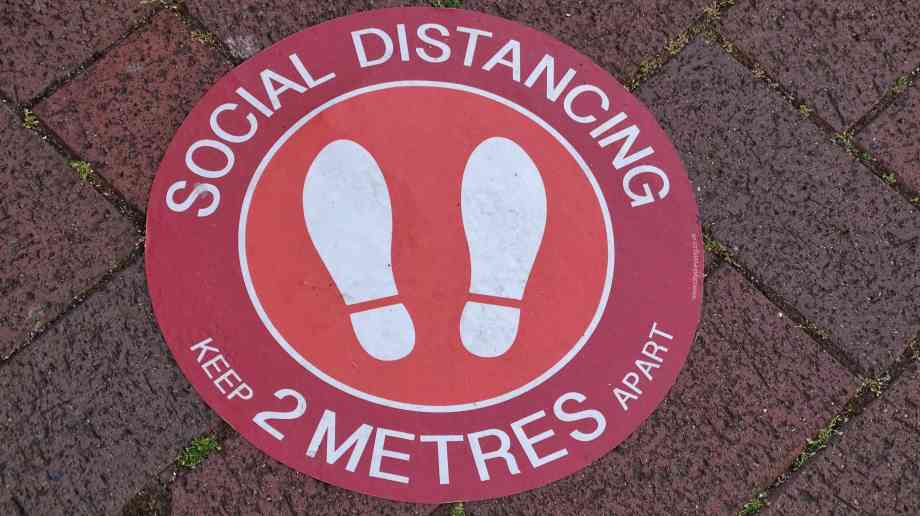Sue Robb of 4Children talks to Julie Laughton and Alison Britton from the Department for Education about the role of childminders in delivering the 30 hours free entitlement.
BMA launches ‘blueprint for leaving lockdown’

The British Medical Association has warned that lifting lockdown without new measures in place risks deepening the crisis in our health service.
A new report by the association outlines major reforms for England, once lockdown is lifted, to keep infection rates low and pull back the NHS from collapse this winter. Without such measures doctors fear that lifting lockdown will leave hospitals and GP practices overwhelmed, unable to provide even the most critical of patient care.
The BMA is calling for the new measures – to bridge the time between the planned end of lockdown in England, on 2 December, and an effective vaccine programme getting underway – to be rapidly brought in. To begin with, the BMA wants to see widescale reform to the testing and contact tracing programme. For example, a far greater proportion of the national budget for track and trace needs to be given to local public health teams so they’re able to provide more effective tracing and testing.
In the second Phase – once England exits lockdown, doctors want to see far more effective and robust national measures up and running to reduce infection rates and keep the virus at bay. The BMA says the government must learn from the first lockdown, where rapid relaxation of infection control policies, inadequate monitoring ,and encouragement to socially mix in restaurants and bars, and to return to work, resulted in a surge of virus spread, leaving us unprepared to face autumn and winter.
Measures that they BMA believe should be introduced include: replacing the ‘rule of six’ which allowed mixing of up to six households with a ‘two households’ rule to reduce social mixing; no travel between or across different local lockdown Tiers; no return to encouraging people to ‘go back to the office’ when it’s possible to work from home; and targeted support for clinically extremely vulnerable individuals and for communities that have been hit hardest by the pandemic.
The report concludes with Phase Three – the widespread uptake of a safe and effective vaccine, protecting vulnerable people and easing economic and societal restrictions. The BMA says that GP practices need information and support, so they are ready and able to provide the vaccinations. As more vaccines become available, there needs to be national and local public information campaigns to help everyone know how where and when they can be vaccinated.
Dr Chaand Nagpaul, chair of the BMA, said: “We must not squander the efforts of the many people who have followed the law, stayed at home, sacrificed freedoms and incurred financial loss in order to contain the virus. When the first lockdown ended, there was no coherent plan for keeping Covid-19 at bay, no clear and simple public messaging; this was followed by spiralling infection rates, more businesses failing, new ‘local’ lockdowns, and now we have a death toll at more than 52,000.
“As England prepares to exit its second lockdown, it is unthinkable that we make the same mistakes again because this time, the impact will be far worse. It’s reasonable to conclude, that without these measures, the NHS will not be able to cope with caring for even the most critically ill patients. This report demonstrates a sustainable plan for reducing the level of infections from Covid-19 until a vaccine programme is underway.”
Company Focus
The Isuzu D-Max is a rugged workhorse that can fulfil a myriad of purposes as both a business and personal vehicle. Consequently, the D-Max is a particularly popular choice when it comes to farming, construction, and trade industries. Uncompromising in nature, the D-Max strives to be the ideal companion for many business needs.
Event Diary
UKREiiF has quickly become a must-attend in the industry calendar for Government departments and local authorities.
The multi-award-winning UK Construction Week (UKCW), is the UK’s biggest trade event for the built environment that connects the whole supply chain to be the catalyst for growth and positive change in the industry.
Supplier Profiles
Geo Energy
At GeoEnergy Design, we're on a mission to disrupt the traditional way heating and cooling ha
Latest Features
Professor Harith Alani, director of the Knowledge Management Institute at the Open University explains how AI can be used for good and bad.
Alex Lawrence, head of health & social care, techUK sets out techUK’s Five Point Plan for CareTech.

















